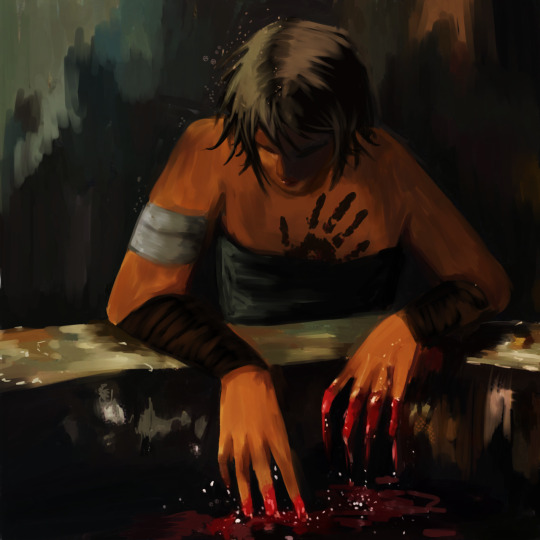#republic of florence
Explore tagged Tumblr posts
Text

Lucrezia de’ Medici (1545–1561)
Artist: Alessandro Allori (Italian, 1535-1607)
Date: 1560
Medium: Oil on panel
Collection: North Carolina Museum of Art, Raleigh, NC, United States
Biography
Lucrezia de' Medici (14 February 1545 – 21 April 1561) was a member of the House of Medici and by marriage Duchess consort of Ferrara, Modena and Reggio from 1558 to 1561.
Married to the intended husband of her elder sister Maria, who died young, her marriage was short and unhappy. The Duchess died of pulmonary tuberculosis, but almost immediately after her death there were rumors that she had been poisoned on the orders of her husband. That suspicion inspired the English poet Robert Browning to create a dramatic monologue in verse "My Last Duchess" (1842).
#portrait#duchess consort of ferrara#female#standing#republic of florence#house of medici#house of este#costume#painting#alessandro allori#italian painter#16th century painting#oil on panel#italian culture#italian history#pearl necklace#artwork#european art
18 notes
·
View notes
Text

It’s my new Munich double briefcase in green from Republic of Florence.
#danielle monique#photography#iphone#australia#daniellemonique#western australia#aquariuswomen#aquarius♒#aquariuswoman#republic of florence#briefcase#green
17 notes
·
View notes
Text

female rage ft. Fang Runin
The personification of female rage
#the poppy war#poppy war#the dragon republic#the poppy war fanart#tpw#tpw trilogy#rf kuang#fang runin#fang runin fanart#rin fanart#rin tpw#rin you would have loved Florence + The Machine and Ethel Cain
835 notes
·
View notes
Text
Florentine Sunset 🌇

#Golden Hour#Piazza della Repubblica#Renaissance#Architecture#City Square#Street Scene#Republic Square#Old City#Sunset#Cityscape#Florence#Tuscany#Italy
93 notes
·
View notes
Text



december doodle diary // glad to be done with this one. featuring la dispute, brand new, florence & the machine, the republic of wolves, and a quote from the book "meet us by the roaring sea" by akil kuramasamy, which was recommended to me by my therapist nearly a year and a half ago but has been haunting me since.
#my art#mystuff#la dispute#brand new#the republic of wolves#florence & the machine#art journal#art journaling
18 notes
·
View notes
Text










HAIL TO THE KING, BABY
it's like. the horror of war and bodies and the gore of power that demands people be brought violently under the heel. something else about renaissance discourses on tyranny, too. everything repeats itself. everything repeats itself. everything---
Vercingetorix throws down his arms at the feet of Julius Caesar, Lionel Noel Royer, The siege of Florence, Stefano Ussi
Caesar and Genocide: Confronting the Dark Side of Caesar's Gallic Wars, K. Raaflaub, The Medici, Mary Hollingsworth
#comparatives tag#some people. on this webbed site. have some interesting brain rot about julius caesar. that is incredibly reductive in several ways#and it makes me think that some people. never did any reading outside of JC and tiktok#the idea that caesar is a Pro Common People figure comes with the implication that victims under roman imperialism ARENT people to you#he's an interesting figure with a lot of nuance for discussion but this site can get so reductive sometimes like good grief#same goes for the medici. lorenzo bought a slave and one of the medici cardinals had a human zoo. also the siege of florence#italian renaissance tag#roman republic tag#julius caesar#beware! the ides of march!
202 notes
·
View notes
Text
This song is for Rex.
youtube
#star wars#grand army radio#trooper radio#grand army of the republic#taking requests#star wars the clone wars#the clone wars#captain rex#clone captain rex#florence and the machine#Youtube
13 notes
·
View notes
Photo







Cupid's got a needle. It'll find a vein. Careful, 'cause you'll bleed a little. But pretty soon romance will marinate your brain. (Lovesick - Women on the Urge of a Nervous Breakdown)
Smoke - Pvris, Life-size dissected woman (detail) - Jacques Fabien Gautier Dagoty, Strangeness & Charm - Florence + the Machine, In My Veins - Andrew Belle, To have and to hold - Giulia Quaresima, Picking Up Pieces - Blue October, Let’s Hurt Tonight - OneRepublic
#veins motif#poetry#writing#lyrics#florence and the machine#florence welch#pvris#andrew belle#one republic#blue october#my posts
63 notes
·
View notes
Note
For Wrapped: 66, 93 and 7 please!
Thank you for the ask!!!
7:
I started listening to it because it was used in a lot of reels, then I listened to the full song and fell in love with it. Now it's on my playlist that I listen to while I write.
66:
When ttpd came out I listened to it on repeat and one of my friends had moved to Florida so for some reason it stuck. I also just really like Florence and the machine so 🤷♀️. NGL as a choir kid I love singing along to songs, it's my therapy basically. And for this one there's just something about the way it's sung that has me hooked.
93:
I started listening to it because it was on the tgm soundtrack on repeat. I love how it gives off summer and beach vibes. Plus it's fun to sing. Every time I hear this song I think of Rooster's iconic (idk what to call it) on the beach. Even years after thinking miles teller was cute in divergent he still has a hold on me as rooster.
#rose answers#rose gets asked#spotify wrapped game#spotify wrap 2024#spotify wrapped#spotify#teenagers#my chemical romance#florida#taylor swift#florence and the machine#i ain't worried#one republic#tgm#bradley rooster bradshaw#miles teller#writer things#rose's lore
3 notes
·
View notes
Text
Traveling somewhere with heavy bags and helping with parts of artist stand after sleepless night (fuck the girlies having party whole night next door at hotel)....
I am drenched, tired and hungry qwq
Con was at last fun.
#what the fuck Czech Republic#traveling in rain can be hell#i gad my first propper coffee at 2pm when we got off the bus because coffee at Florence (Prague) SUCKS#it tasted like burnt corn#at last the KofiKofi coffee was good#i live and I will post little thing when I get to it#em rants about life
5 notes
·
View notes
Text
Ficino: so. I've had an idea.
Church: put it back! PUT IT RIGHT BACK WHERE YOU FOUND IT!
Ficino: but. it's about love!!
Church:
Church: alright. speak.
Ficino: so there are daemons, right? Everyone has one. And there are also bad daemons and good daemons and the best are the ones that belong to Venus, goddess of love--
Church: excuse me what
Church:
Church: you know you're a priest right?
Ficino: I've some finicky theology worked out to make all of this okie dokie. Trust me. Don't worry about it.
Church: what
Ficino: what?
#my small hunched back mad man#never change#along with your ecstatic singing and natural magic#marsilio ficino#marsilio blogging#early modern florence#republic of florence shit posting
5 notes
·
View notes
Photo
Bruno Mars, Rihanna, Beyoncé, Lana Del Rey, and Marina & the Diamonds

mine would probs be: one direction, taylor swift, ed sheeran, the script and coldplay
#cold play#fall out boy#florence and the machine#panic at the disco#one republic#young the giant#me#there’s more but god i would i have to look through my pandora likes and old playlists
52K notes
·
View notes
Text
any project is a disco elysium successor project if you've set it in a politically brittle city-state
#i was actually jarred when i'd found out what a common setting it really is#you start from the republic of florence and then change everything about it
1 note
·
View note
Text
does anyone else ever get that feeling where its like.
you're fine and you're okay and you're fine and you're okay and everything's neutral and normal and neutral and below-average and okay, when you're suddenly assaulted by the bare and basic and horrifically made ingenuity of humanity. The never-ending cycle and motor of change, but it doesn't change, does it? The monolith and its ideals stand tall and ever-lasting for thousands of thousands of years and you lay there in its shadow and watch as history swirls and coils around it, century-long projects rising from marshy and swampy earth to curl in circles and domes and spires, a dizzying red white and green that lasts far, far, far, far, beyond what anyone can ever pray- because that's what they do, pray- to remember or know, the dazzling endlessness of the human want for pretty things, and all the architects and well-known magicians of the past cry and holler and yell in victory and wonder as they fireworks crack above the watery town full of alleys- we did it, we made it, we did it, it still stands after hundreds of years-
and you just sit there and look up and watch and marvel and when they ask you isn't it wonderful? Isn't our world, our work, our life, our belief in something we never see wonderful? Isn't the human life a marvellous thing? and you have to sit there and watch as pyramids are built before you yet still stand thousands of years later, and you just have to go yes, yes it is, but why do you still celebrate? there is nothing more to build, nothing more to do, all the wonder in the world has already been made.
and the ancestors of the world's people and buildings and history look down and say oh.
oh, oh. oh. oh, OH.
The world is still full of wonder-
but how do i make it? how to i push it forth when every speck of immortality has already been taken into the wonderful domes and spires and palaces of the old? How can i create wonder, when there is no more space to build?
and. and they just reply-
you have to be willing to dig.
#nokt's rambles#im in a weird headspace rn#i visited Venice and Florence#art and architecture. . . the longest living relics#venice stood as a republic for a hundred years or more. how can i stand for anything and mean anywhere close to what it did?#i guess i have to find out#i guess i have to dig.
1 note
·
View note
Text
Coolness that flows through the old city streets. 😎

#Piazza della Repubblica#Renaissance#Architecture#City Square#Street Scene#Republic Square#Old City#Window#Sunlight#Cityscape#Florence#Tuscany#Italy
59 notes
·
View notes
Text
I'm always criticizing eurocentric fantasy worldbuilding, but one thing I think it's underused are city-states and trade republics and leagues. Not that they don't exist, but they're often in the background, the fantasy genre is so focused on monarchies and dynasties and noble drama, while those systems have so much room for intrigue and stuff without getting into "who's the TRUE heir of the super magical monarch" (yes, I know they had aristocratic families that ruled almost as monarchs, but trust me, Medici drama is another beast from regular feudal stuff)
Venice with its stupidly complex election system and their eternal rivals in Genoa, Florence home of the Rennaissance, the Hanseatic League, and lesser known examples like Novgorod, the Polish-Lithuanian Commonwealth, the Taifa of Córdoba, the Consolat de Mar (technically not a republic but kind of an Iberian Hansa) and if we go farther back, the leagues of city states of antiquity... you know what, I'm bored of feudalism. Next time I do a fantasy setting, it will all be city states and republics. Fuck feudalism.
5K notes
·
View notes